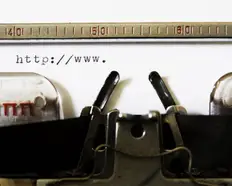Converse com a Ava - Sua Consultora AI de Negócios
Olá, eu sou a Ava, seu guia de IA para turbinar seus negócios!
Se você já está a frente de um negócio ou sonha em começar um, estou aqui para te ajudar a transformar suas ideias em realidade usando freelancers com a ajuda de tecnologia de IA. Compartilhe seus objetivos de negócio e, juntos, criaremos um projeto pelo qual nossos talentosos freelancers possam concorrer. Vamos transformar suas ideias em realidade!
Eu tenho um negócio
Estou começando um negócio
Algo deu errado ao enviar a conversa para o seu e-mail. Por favor, tente novamente mais tarde.
Você só pode salvar sua conversa uma vez por hora. Por favor, tente novamente mais tarde.
Sua conversa é muito curta. Continue conversando com a Ava para permitir o salvamento.
Why you should hire a professional to write your resumé
Are you looking to polish up your CV? Hiring a professional resumé writer can make all the difference in your job hunt. Here's why.
26 de fev. de 2020 • 5 minuto lido

PhD Level Research, Market Research, Data Science.
Não foi possível copiar para a área de transferência, por favor, tente novamente após ajustar suas permissões.
Copiado para a área de transferência.

Hiring a professional to write your resumé puts you ahead of the competition
A well-polished and professionally updated CV can be the difference between getting that job interview and being shuffled to the bottom of the pile. While a resumé showcases your achievements, it also creates the first impression about who you are to the people reading it.
The job market is increasingly competitive, with a high number of workers striving for the same opportunities. If you want your resumé to get noticed, you should consider getting a professional writer to help.
The benefits of hiring a professional resumé writer
Just about all of us have a resumé on file. They're not hard to produce, and there are plenty of templates out there to help create them. So, why hire a professional to do something we could do ourselves? Well, there are plenty of reasons hiring a professional resumé writer will give you an edge.
Experience with hiring
One of the biggest advantages of hiring a professional writer for your resumé is that, in addition to ensuring that your resumé maintains a professional tone throughout, professional writers are often knowledgeable about what companies are looking for in a resumé.
Many professional resumé writers have experience as hiring managers, and they know what catches the eye of HR professionals. They've likely sorted through hundreds if not thousands of resumés during their career, and they have firsthand knowledge of what elements grab a hiring manager's attention.
Avoid costly mistakes
About 77% of hiring managers reject resumés due to grammatical errors. Such typos and errors can be avoided by hiring professionals to update your resumé. As part of their professional obligations, resumé writers ensure that your resumé is free of grammatical errors before submitting it to potential employers.
Save time and get hired quicker
Hiring a professional to work on your resumé saves both time and money. Keeping up with the current changing trends and requirements to keep your resumé up to date can be a daunting and time consuming affair. With professional writers however, since it is their job to keep up with any changes in their industry, hiring one ensures that your resumé is always updated to current formats and changes.
In the same vein, while you technically spend money when hiring a professional writer, the amount you spend on a professional is considerably lower compared to the amount of money you lose in prolonged unemployment.
Get yourself noticed
A well-written and professionally presented resumé creates a stellar first impression and goes a long way in compelling your case to the hiring manager or panel. Professional writers ensure your resumé is clear, concise and showcases your professionalism and prowess in your field, thereby increasing your odds. In essence, the impression your resumé makes on the hiring manager can determine whether or not they actually read it. Research from CareerBuilder shows that about 40% of hiring managers spend less than a minute analyzing a resumé. A poorly organized and presented resumé doesn't stand a chance.
Increase your earning potential
A study from TopResume showed that recruiters valued candidates with professionally written resumés at about a 7% higher salary than those without. This is because a professionally written resumé will not only present a captivating and compelling narrative of your career, it also highlights your value to an organization. This is because professional resumé writers are experts at showcasing your skills and achievements.
Information you need to provide to a professional resumé writer
One of the most basic information to provide the writer is your personal details, which includes your name, physical address, contacts, and occupation. You should also provide them with a history of your past work experiences, your greatest achievements or milestones in your career, as well as your skills and weaknesses. It's especially important to be open to your writer regarding your areas of strength and weaknesses to avoid exaggerations and misrepresentations on your resumé that could be problematic. Present your writer with your email address as well as links to your other professional platforms such as LinkedIn.
It is also important to provide the writer with some context about your goals and career objectives. Tell them about your skill set and the value you believe you can add to an organization.
You should also provide information regarding your work experience and history. This includes the name of the company you previously worked for, your key roles and responsibilities, as well as (in some cases) the contacts of potential references. If you can, provide some concrete examples about your achievements at each company. What measurable impact did your work make on the company?
Then, provide the writer with details of your education and qualifications. This includes providing names of the institutions, as well as the level of qualifications in each institution.
In addition to providing details regarding your work history and experience and your education and qualifications, you might also want to give the writer additional details that can make your resumé stand out. For instance, provide details regarding your hobbies and interests to enable the writer to highlight your compatibility with a given company or organization. You'll also want to provide details of any awards and accreditations. Showcasing your awards showcases your abilities to potential employers.
Other details such as your IT skills, your mastery of different languages, as well as your key skills further speak to your career development and enable the writer to create a competitive resumé, thereby giving you an edge over your competitors.
How to structure a resumé
When it comes to the formatting or structuring of your resumé, there is no one-size-fits-all solution. However, there are several basic guidelines to be followed to enhance the resumé’s structure, level of professionalism and neatness.
To start with, the first part of the resumé should contain your personal details. This includes your name, contact, and current active email. The next part should highlight your personal profile. This part entails a statement that summarizes your expertise, your goals and career objectives. It is important to always provide specific skills in this section that are relevant to the career/job you're applying for. More importantly, this statement should be brief and to the point.
This should be followed by a skills section that highlights your capabilities and key skills such as proficiency in any software tools, technical expertise. It is important to list these skills and strengths in bullet points.
Next is the work experience and history section together with any volunteer work. In this section, start with your most current work experience and move backwards. Include relevant dates of your employment history, together with the name of the employer, your title, type of job, and the roles and responsibilities undertaken. It's important to note that there should be no gaps left in between the employment dates. Any activities undertaken in between the employment history should be indicated.
This is then followed by the education and qualifications section. Here, you should chronologically list any schools you've attended. Include the name of the institution, dates you attended, qualifications you earned and any academic achievements.
Towards the final part of the resumé, include an interests and hobbies section (optional). This helps to make your resumé more unique and gives prospective employers some insight into your personality.
The final section is your references. While there's no need to write the details of your references in the resumé, it's advisable to mention that they are available on request.
Final words
It's tough out there for jobseekers. You face stiff competition for any role. What's more, your resumé is just one in a sea of CVs that hiring managers have to sift through. Anything you can do to make yours more attention grabbing will give you an edge on other candidates. Hiring a professional is a small investment that can pay enormous dividends.
Diga-nos o que você precisa que seja feito
Digite o nome do seu projeto
Histórias Relacionadas
Fale com um de nossos Co-pilotos Técnicos para que ele possa te ajudar no seu projeto
Artigos Recomendados Somente para Você

Hiring freelancers for a project can save you time and money, but it's important to understand how to get the best results
4 min read

Hiring a freelance writer? Find out how to write the perfect brief so you end up with a stellar writeup.
5 min read

Finding the right freelance writer can make your company a content marketing powerhouse. We'll walk you through the questions to ask.
4 min read

Posting a contest on Freelancer.com is a great way to tap into the global talent pool. In this post we will show you how to do it step-by-step.
4 min read
Obrigado! Te enviamos um link por e-mail para que você possa reivindicar seu crédito gratuito.
Algo deu errado ao enviar seu e-mail. Por favor, tente novamente.
Carregando pré-visualização
Permissão concedida para Geolocalização.
Sua sessão expirou e você foi desconectado. Por favor, faça login novamente.




